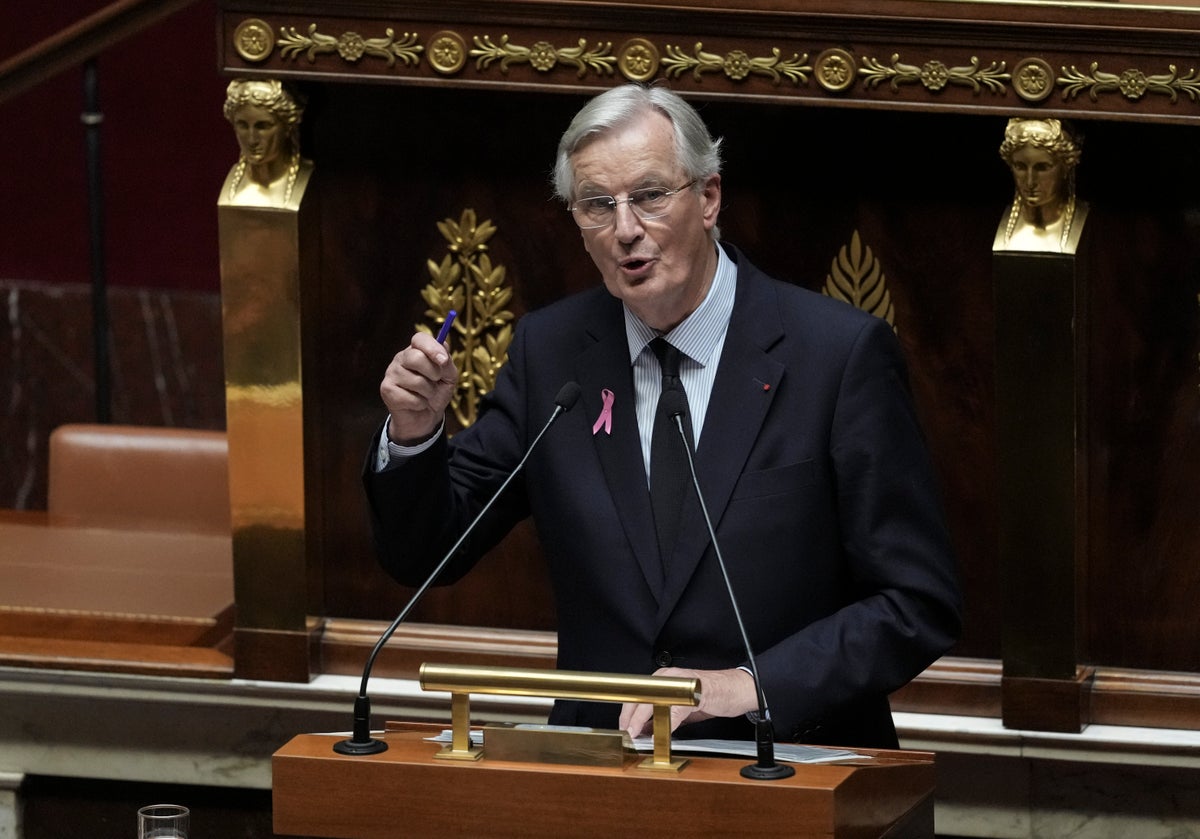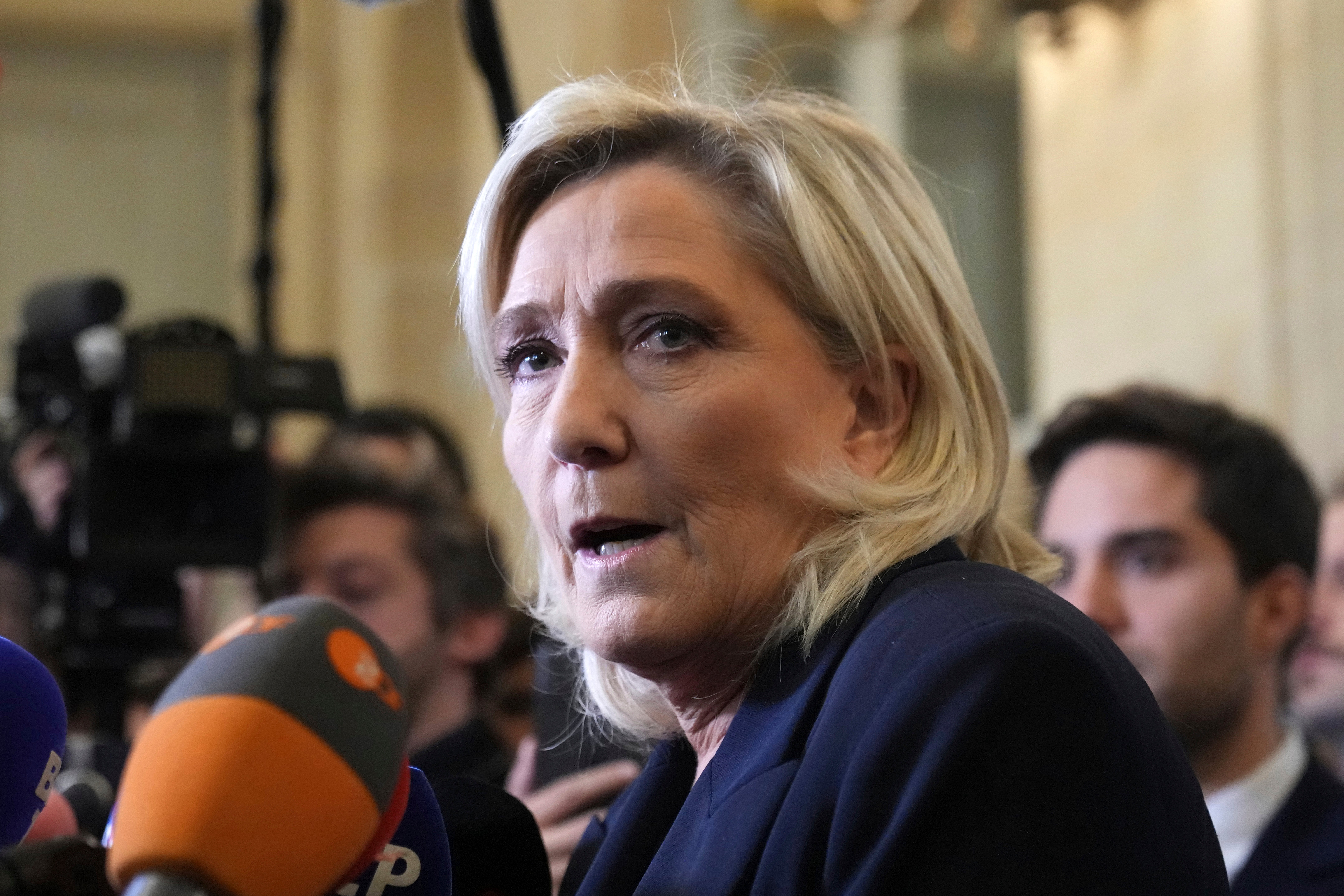
The French government is on the verge of collapse, with prime minister Michel Barnier set to face a no-confidence vote on Wednesday after he used special constitutional powers to push through a social security budget bill.
Both the far-right National Rally (RN) and an alliance of left-wing parties – comprising the Socialists, Greens, far left and Communist party – have said they will vote for a no-confidence motion against Mr Barnier, which was lodged on Monday afternoon. That will force the resignation of Mr Barnier after just two and a half months in post.
No French government has been forced out by such a vote since 1962.
Their move comes after Mr Barnier rammed the bill through parliament using article 49.3 of the French constitution, which allows the text of a bill to be passed without a vote. A last-minute concession was not enough to win support for the bill from RN.
The party’s leader, Marine Le Pen, said her party would table its own no-confidence motion but would also vote for any similar bill put forward by other parties.
“The French have had enough,” she said. “Maybe they thought with Michel Barnier things would get better, but they were even worse.”
Mathilde Panot, of the far-left France Unbowed, said: “Faced with this umpteenth denial of democracy, we will censure the government ... We are living in political chaos because of Michel Barnier’s government and Emmanuel Macron’s presidency.”

Should all RN MPs vote with the left to topple Mr Barnier, the government will not survive. Investors immediately punished French stocks and bonds as the latest developments plunged the eurozone’s second-biggest economy deeper into political crisis. The euro fell 1 per cent and was heading for its largest one-day drop since early November.
Mr Barnier’s struggles to get the 2025 budget through a deeply divided parliament threaten to plunge France into its second political crisis in six months, underlining the instability that has taken hold in countries across the EU. He urged MPs not to back the no-confidence vote.
“We are at a moment of truth,” Mr Barnier told parliament as he put his government’s fate in its hands. “The French will not forgive us for putting the interests of individuals before the future of the country.”
He added: “The French expect stability and visibility. I went as far as dialogue allowed ... Everyone has to take responsibility, and I am taking mine.”
Ms Le Pen added: “Barnier didn’t listen to the 11 million voters of the RN ... He said everyone should assume their own responsibility, and that’s what we will do.”
Since its constitution in September, Mr Barnier’s minority government has relied on RN support for its survival. While the alliance of left-wing parties known as the New Popular Front topped a snap July election called by president Emmanuel Macron, and RN was the single party with the most votes, Mr Macron’s centrists eventually struck a deal with the centre-right and conservatives to form a government, led by Mr Barnier.
The left-wing alliance was left furious by Mr Macron’s decision and promised to vote against the government. That has left Mr Barnier leaning on RN to help push measures through parliament. The budget bill, which seeks to rein in France’s spiralling public deficit through €60bn (£50bn) in tax hikes and spending cuts, may snap that tenuous link.
If Mr Barnier does not survive the vote, he will remain in place – as will ministers – until Mr Macron announces a new government. Given the splintered nature of the French parliament and the likelihood of further anger over the French president’s choices, a new coalition majority may face the same problem. Mr Macron may appoint a technocratic government to steer the country until new elections can be held in summer 2025.
Mr Macron is due to stay in his post until 2027, when the next presidential elections are held, although there have been calls from some parties to bring that date forward. Mr Macron is not eligible to run, as he is limited to two consecutive terms in office.
Reuters contributed to this report







